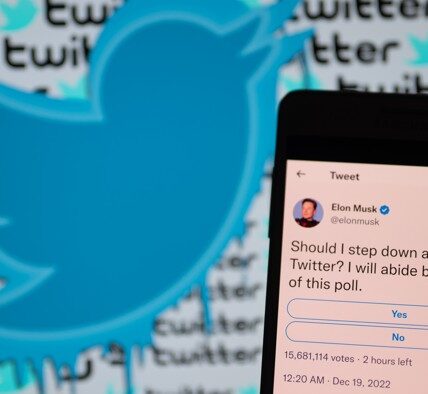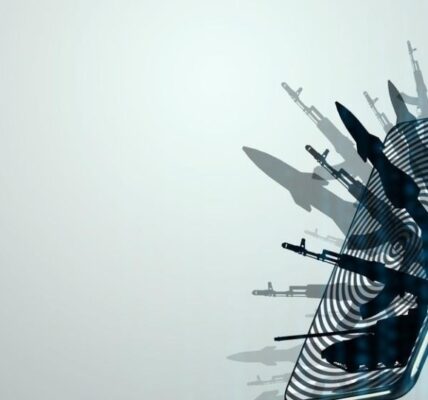Educating Against Deepfakes: India’s Disinformation Battle Offers Crucial Lessons for Upcoming Elections

In light of the upcoming UK election, the threat of AI-driven disinformation, like deepfakes, is a growing concern. The UK’s Joint Committee on the National Security Strategy emphasised the urgency, stating “It is more important than ever that the UK Government equips the public with the information necessary for spotting a deepfake.” In a recent letter, the committee urged that this is “a matter of priority now that an election has been called,” recognising that a comprehensive approach should include public education efforts.
India’s proactive battle against disinformation, focusing on empowering informed online users, offers crucial lessons for the UK, US, and beyond. By examining India’s approach, other nations can prepare and protect their democratic processes from the imminent threat of AI manipulation.
In a conversation with India’s Digital Empowerment Foundation (DEF), National Security News (NSN) explored the challenges of information overload in the digital age. DEF, known for its work in bridging the digital divide, now faces a new battleground: an “information epidemic” fuelled by misinformation. India’s experience with disinformation during COVID really highlighted this issue, prompting a shift in DEF’s focus towards equipping communities to critically evaluate the information they encounter online.
Akanksha Ahluwalia, DEF’s Digital Communications lead, explained to NSN, “In the last two years we realised that there is a need for AI education.”
Ahluwalia observed that even digitally savvy individuals, who use AI tools for social media or chatbots like ChatGPT, lack a fundamental understanding of what artificial intelligence truly is. “We’ve been moving towards being a consumption state, but we don’t really understand what we’re consuming,” she stated.
Ahluwalia emphasised, “At the centre of initiatives like this, we try to think about it from their perspective instead of from our privileged perspective, and see how we can enable them to understand at least what is right and what is wrong when it comes to digital information.”
Ahluwalia points out how disinformation is often strategically targeted to harm specific communities. “The kind of fake news or misinformation that we see is very targeted. It’s targeted towards a particular community, a particular class, or a particular caste, and it’s coming with an intention to hurt.”
Additionally, the popularity of the sources generating this content adds another layer of complexity. “Another thing we’ve realised is that the kind of deepfake content that gets generated here is coming from very popular sources. So, it’s very emotional in nature,” noted Ahluwalia. “It’s meant to cause this sort of emotional feeling from you where you’re like, ‘Oh, this is my favourite actor. I should support him,’ or ‘Oh, this is my favourite cricketer. I should support him.'”

To address these issues, DEF developed the “Media Information Literacy Kit,” a resource tackling various online threats. This kit equips users to identify misinformation, understand the concept of AI, and even explore how to leverage AI for positive purposes. These are some of the ways DEF’s approach can be a blueprint for success:
Culturally Relevant Examples: DEF leverages popular culture to resonate with users, also working with people on the ground the formulated relevant examples of misinformation and fake news. For instance, they use a well-known “fake news fighter” character from a Bollywood film to instantly signal the message’s purpose. Ahluwalia said “As soon as you look at a character like that you immediately know what’s good and what’s bad.”
Building Critical Thinking Skills: The core of DEF’s kit is fostering critical thinking. They encourage users to analyse information before sharing it. Ahluwalia explains, “Providing an understanding of how you can use Google reverse images for example. Then, instead of just listening to the message, how do you look at visual markers that can help you understand that this might be fake.” This she said extends to understanding what reliable sources are for fact-checking.
Diverse Learning Methods: Accessibility and inclusivity are key. The kit uses various formats like comic books, gamified learning (adapting familiar games like snakes and ladders), and role-playing activities to cater to diverse learning styles and age groups. “We realise it retained their attention really well”, stated Ahluwalia. Recognising the importance of inclusivity, DEF has translated the kit into 8 languages with plans for all 24 Indian languages.
Community Engagement: DEF recognises the importance of community. Ahluwalia highlights that misinformation can have a significant impact, stating, “We should understand that there are community members who can be physically and emotionally affected by deepfake photos, misinformation, or fake news.” The kit even offers guidance on collaborating with local institutions in the event of a deepfake crisis.
Building a Global Network: DEF’s partnerships with media outlets like DW News as well as messaging platforms such as WhatsApp allows them to showcase real-world examples of deepfakes and misinformation. This empowers communities to identify manipulative tactics. DEF also participates in a network of 14 countries sharing best practices and developing cross-border solutions for combating misinformation. Ahluwalia highlights the network’s value: “They talk about their own context. They talk about the kind of developments that are happening in their countries. And then we have ideation sessions on how we can have an impact or get together to create more programmes like this, that can be cross national or cross international.”
By adopting a multi-faceted approach like DEF’s, the UK and other nations can empower their citizens to become discerning consumers of online information, especially in an age of artificial intelligence, rampant disinformation, and misinformation spreading like wildfire. Culturally relevant tools, fostering critical thinking, and community engagement are key elements in building a more resilient society against the threats of deepfakes and misinformation.

































































































































































































































































































